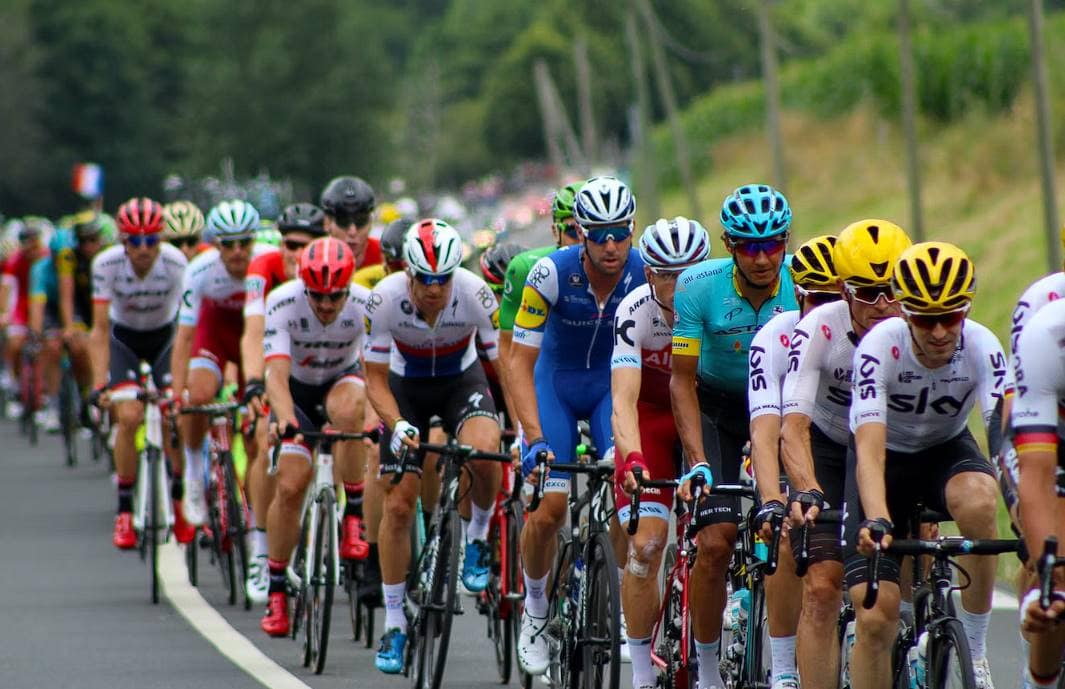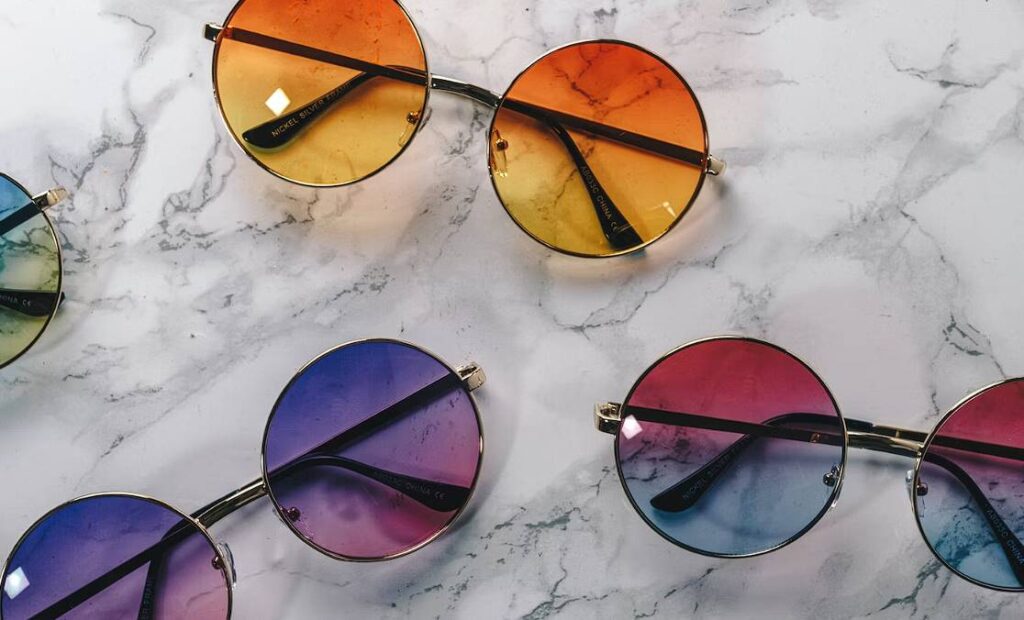Do you wear glasses and still like participating in physical activities? It's crucial to know how to maintain the lenses of your sports glasses. Although these lenses are made to resist the rigours of exercise, they still require careful maintenance to keep them clear and effective. To maintain clear and unimpaired vision while participating in your favourite activities, this article will discuss helpful hints and procedures for caring for your sports eyeglass lenses.
Proper maintenance is essential for the life and effectiveness of the lenses in your sports glasses. Simple yet efficient methods for removing dirt, sweat, and debris include routine cleaning with a lens-safe solution and a microfiber cloth. Your sports eyewear will last longer if you keep it in a hard case while not being used. Lenses should also be kept away from excessive heat and chemicals. If you take good care of your sports eyeglass lenses, they will last longer and continue to improve your vision and performance.
These suggestions are only the beginning, though. Our detailed manual goes into greater detail on how to maintain the lenses of your sports glasses. We offer professional advice and cutting-edge lens-care methods to ensure your glasses look great. Find the solutions to frequent problems and the best practices to get the most out of your sports eyewear for as long as possible. Without further ado, let's get into the ins and outs of taking care of the lenses in your sports eyewear so that you can enjoy an enhanced sporting experience.
Come along as we discuss how to care for the lenses in your sports glasses properly. By following these guidelines, you may improve your vision, your performance, and your endurance in sports. Let's work together to maximise the effectiveness of your sports glasses so that you never miss a play.
The Pros & Cons of Using Contact Lenses in Competitive Sports
PROS
There are many pros to wearing contact lenses instead of spectacles. You won't have to worry about them falling off during a workout or running because of your sweat. This way, your glasses won't slide down your face or bounce around uncomfortably. Also, contact lenses are ideal for activities that need quick reflexes, like basketball and soccer.
They improve your visual steadiness and give you a broader visual field, letting you give your finest performance. They are also great for snow activities if you want to keep your prescription goggles or sunglasses on your face, but a helmet would get in the way.
The risk of eye injury from broken glass is eliminated when using contact lenses, making them ideal for contact sports like rugby and karate. They won't break as easily as regular glasses would, so your eyes will be safe even while pushing yourself to the limit.
There is no such thing as bad weather for contact lenses. They are resistant to fogging, rain, and dirt so you may use them in any weather. They maintain their clarity even in arid environments by not attracting dust.
UV-protective contact lenses can be purchased for people who are worried about their eyes. Wearing these sunglasses all day will protect your eyes from the sun, whether playing cricket on the beach or climbing a mountain. Contact lenses with UV protection are not a replacement for sunglasses or goggles with the same level of protection from the sun. Additional safety measures are recommended because these contact lenses do not cover the eye and surroundings entirely.
CONS
Unlike glasses, contact lenses provide athletes with several benefits, including enhanced peripheral vision, a wider field of view, and greater freedom of movement. Wearing contact lenses for athletics comes with its drawbacks, though. Running, jumping, or even minor collisions can cause contact lenses to move out of place, causing pain and perhaps blurred vision.
Lenses can also get irritated and difficult to see through if dust, dirt, or sweat builds up on them. Water sports present an additional issue for athletes because it can dry up contact lenses, making them unpleasant, or even wash them away. Another problem is that contact lenses require regular cleaning and replacement to prevent eye infections and corneal abrasions. Lastly, certain athletes may have trouble adjusting to the feeling of having a foreign object in their eyes, which can hurt their ability to focus and perform.

Swim And Water Sports Contact Lenses
Swimming and other water sports can be challenging for those whose eyes are corrected with contact lenses. Although contact lenses allow you to ditch your eyeglasses for everyday tasks, they are only sometimes a good idea when you're swimming. Contact lens technology has progressed to the point that there are now lenses made expressly for use in the water.
This blog post will discuss the use of contact lenses for swimming and other water activities, covering the different kinds of lenses available, the advantages and disadvantages of each, and the most important precautions to take.
Scuba Diving
Scuba masks with prescription lenses can be purchased; however, most divers find contact lenses and a regular mask work just fine. If you spend much time on the surface between dives, using daily disposable lenses and throwing them away after each dive is best. When diving, wearing a snug mask is important to prevent water from entering the body. You'll need to remove your mask and let water in during training; if you can, do so without your lenses to protect them from being wet.
Swimming
We advise that swimmers who wear contact lenses instead purchase prescription goggles. In any case, the healthiest contact lenses for swimming are daily disposables. If you want to avoid becoming sick while swimming, put these on under your goggles and toss them away after you're done.
Sailing
When out on the water, safety equipment is essential. You should use UV-protected contact lenses and non-prescription wrap-around sunglasses to be safe. This will keep the sun out of your eyes and shield your lenses from the wind and salt.
Ball-Sport Contact Lenses
Football, volleyball, cricket, and tennis are just some sports where a broad field of vision is essential for keeping track of the ball and other players. Contact lenses improve vision in all directions, helping you focus more intently on the game. In the summer, protecting your eyes from the UV ray or sun is just as important as protecting your skin. Consult your optometrist about whether brands of contact lenses offer enough UV protection.
Importance:
Ball sports like basketball and volleyball rely heavily on the use of contact lenses. When compared to other methods of correcting nearsightedness, they offer significant benefits for athletes.
- Unobstructed Vision: Since contact lenses are placed directly on the eye, they provide for unobstructed central vision and a wide periphery.
- Enhanced Depth Perception: Depth perception is very important when playing ball sports, and contact lenses improve this ability.
- Improved Comfort and Safety: Contact lenses are built to stay in place during strenuous physical activity, so you may run, jump, and dive without worrying about them falling out of your eyes.
- Compatibility with Protective Gear: Spectacles might be difficult for athletes to utilise because of the prevalence of headgear like helmets and goggles.
- Unaffected by Weather Conditions: Contact lenses, in contrast to eyeglasses, remain functional in wet, foggy, or sweaty environments.
- Wide Range of Corrective Options: Corrective contact lenses are versatile, allowing for the treatment of a number of vision issues.
Tips for Cleaning Eyeglasses
Glasses are an integral part of your everyday life, not merely a means to better your eyesight. Whether you wear glasses for working, reading, or driving, keeping them clean and in good working order is essential. Lenses that are dirty or smudged can make it difficult to see clearly and reduce the effectiveness of your glasses. More generally, your spectacles and your eyesight will benefit from proper care.
This manual delves into the finest methods for keeping your eyeglasses spotless, scratch-free, and operational at all times. Let's look at the world of cleaning eyeglasses and find out what it takes to keep your eyesight crystal clear with no effort. Here are five ways to maintain the cleanliness and durability of your eyewear:
The First Step Is Always a Rinse
Before putting your glasses back in their case after a long day:
- Rinse them in clean water. If you want to keep the lenses and the frame from cracking, only use lukewarm water.
- Do the hand washing first, then the rinse.
- Wash using both hands to avoid losing or breaking the glasses.
Remove grime from the lenses' sides and rear with soap or a little dish. Please take a minute to rub the frame and the nose pad gently. When you remove your glasses, most of the sweat and oil will be left on the inside edge of the lenses or the frame's bridge where the lenses meet. Clean this area with special care.
Take Advantage of Suggested Goods
What you should use to clean your reading glasses has been covered. Ties, shirt tails, tissues, paper towels and napkins are all things that people use. Lenses can have their protective coatings stripped by using these items.
Use the microfiber cloth your eye doctor or optician will give you to clean your glasses. You should avoid using anything else because doing so may leave fine markings that blur your vision. Don't use anything strong, not even your saliva. Spraying on some cleaning solution will help you eliminate smudges and grime more quickly.
Make Sure the Glasses Are Spotless
The majority of individuals will clean the lenses. However, the frames often need to be remembered. Frames for eyeglasses are particularly significant since bacteria can easily colonise their tiny crevices. In addition, your hands are constantly in contact with this area of your spectacles. It would be best if you focused more on them.
The glasses rest on your entire face, right up to your nose and eyes. Various skin problems and eye irritations can be brought on by their potential to contain germs and bacteria. Make sure the nose pads, hinges, and screws are all clean before you put them back together. Cleaning the lenses is as simple as wiping them down with your fingertips and a microfiber towel.

Use Your Case
Avoid setting your eyeglasses down on the table or any other surface, especially if it is not level. There's always a chance they'll tumble to the ground, soiling themselves. Always bring your case with you, whether at the workplace or out and about. Please don't let your glasses get dirty by leaving them on the table; instead, put them back in their case.
Keep your glasses off your head, too. Whether you drop them or not, dirt will collect on them faster, leading to loosening and damage. Please make sure the glasses are dry before putting them away. Use a microfiber cloth to clean them before putting them away.
Avoid Smoothing Over Damage by Polishing
Don't try to buff it out if you notice a scratch on your glasses lens. Never try to fix a scratch by picking at it or using your fingernail. Adding fuel to the fire, as it were. A hazy lens or more scratches are possible outcomes.
There is currently no treatment for the scratch. Lenses with a scratch-resistant coating make these kinds of imperfections less noticeable. However, scratches on the lenses are permanent once discovered. Seeing an optician about your glasses is your only option. Lenses should be replaced when scratched to ensure the wearer's safety and optimal vision.
Conclusion
Athletes need special glasses designed for sports if they want to keep their eyesight and performance at peak levels. The efficiency and useful life of these lenses depend on regular care. A microfiber cloth and lens-safe solution are all you need to keep your glasses free of dust, sweat, and debris. Protect your sports glasses by storing them in a sturdy case and keeping them out of direct sunlight, heat, and chemicals.
There are many advantages to using contact lenses, including better eyesight, a broader field of vision, and less restriction in your range of motion. However, they do not work well with UV-protective contact lenses, fog, rain, or dirt, and can cause serious injury to the eyes if they break.
Wearing contact lenses while engaging in physical activity, especially in the water, can be irritating and uncomfortable. To prevent these problems, swimmers should use disposable glasses and throw them away after each swim. Protecting your eyes from the sun and the wind and salt on the lake is important, so wear non-prescription wrap-around shades or UV-protected contact lenses.
Basketball, volleyball, cricket, and tennis are just a few of the ball-sports where a wide field of vision is crucial for keeping track of the ball and other players; ball-sport contact lenses are a necessity for these games. It is just as crucial to shield your eyes from the sun's harmful rays as it is to shield the rest of your skin. Check with your eye doctor to see if your contact lenses provide adequate protection from UV rays.
If you want your sports glasses to last and perform their best, you need to take good care of them. Athletes can improve their performance and get the most out of their sports eyewear if they follow these recommendations. The benefits of wearing contact lenses include clear vision, better depth perception, less eye strain, greater safety, the ability to wear protective gear, and performance in damp, foggy, or sweaty conditions. Their adaptability makes them useful for treating a wide range of eyesight problems.
Content Summary
- Learn how to keep your sports glasses lenses clean for optimal performance.
- Regular maintenance is crucial for the effectiveness and longevity of your sports glasses lenses.
- Use a lens-safe solution and a microfiber cloth to remove dirt, sweat, and debris from your lenses.
- Keep your sports eyewear in a hard case when not in use to prolong its lifespan.
- Avoid exposing your lenses to excessive heat and chemicals.
- Proper care of your sports eyeglass lenses will improve your vision and performance.
- Discover more detailed tips and methods for maintaining your sports glasses lenses in our comprehensive manual.
- Our professional advice and cutting-edge lens-care techniques will ensure your glasses always look great.
- Find solutions to common problems and learn the best practices for maximising the lifespan of your sports eyewear.
- Enjoy an enhanced sporting experience by taking proper care of your sports glasses lenses.
- Follow the guidelines provided to improve your vision, performance, and endurance in sports.
- Work together to maximise the effectiveness of your sports glasses, and never miss a play.
- Contact lenses offer numerous advantages over spectacles for athletes.
- Say goodbye to glasses falling off during workouts or running due to sweat.
- Contact lenses provide better stability and a broader visual field for improved performance.
- Ideal for quick-reflex activities like basketball and soccer.
- Contact lenses allow you to wear prescription goggles or sunglasses with a helmet.
- Eliminate the risk of eye injury from broken glasses during contact sports.
- Contact lenses are resistant to fogging, rain, and dirt, making them suitable for any weather conditions.
- Maintain clear vision even in arid environments without attracting dust.
- UV-protective contact lenses offer additional eye protection during outdoor activities.
- Contact lenses are not a substitute for sunglasses or goggles with proper sun protection.
- Consider the pros and cons of wearing contact lenses in competitive sports.
- Enhanced peripheral vision and a wider field of view are advantages of contact lenses.
- Minor collisions or movements can cause contact lenses to shift, leading to discomfort and blurred vision.
- Dust, dirt, and sweat can build up on contact lenses, affecting visibility.
- Water sports can dry up contact lenses or wash them away.
- Regular cleaning and replacement of contact lenses are necessary to prevent eye infections and corneal abrasions.
- Some athletes may have difficulty adjusting to the feeling of wearing contact lenses, affecting their focus and performance.
- Special contact lenses are available for swimming and water sports.
- Prescription goggles are recommended for swimmers instead of contact lenses.
- Daily disposables are the healthiest contact lenses for swimming.
- Use UV-protected contact lenses and non-prescription wrap-around sunglasses while sailing.
- Ball sports like football, volleyball, cricket, and tennis benefit from contact lenses' improved vision.
- UV protection is crucial for eye safety in summer sports; consult your optometrist for suitable contact lenses.
- Contact lenses provide unobstructed vision and enhanced depth perception in ball sports.
- Improved comfort and safety during physical activity with contact lenses.
- Compatibility with protective gear like helmets and goggles.
- Contact lenses remain functional in wet, foggy, or sweaty environments.
- Corrective contact lenses offer a wide range of options for different vision issues.
- Proper cleaning is essential to maintain clean and effective eyeglasses.
- Dirty or smudged lenses can reduce clarity and effectiveness.
- Care for your spectacles to benefit both your eyewear and eyesight.
- Rinse your glasses with clean, lukewarm water before storing them.
- Use a microfiber cloth and lens-safe cleaning solution for smudges and grime.
- Pay attention to cleaning the frames and nose pads to prevent bacteria buildup.
- Always use your glasses case to avoid soiling them on surfaces or dropping them.
- Keep your glasses off your head to prevent dirt buildup and damage.
- Avoid attempting to fix scratches on lenses, as it may cause further damage.
- Scratched lenses should be replaced by an optician to ensure safety and optimal vision.
Frequently Asked Questions
Yes, you can use lens cleaning sprays or wipes specifically designed for eyeglass lenses to clean your sports eyeglasses. Look for products that are labeled safe for use on anti-reflective or anti-fog coatings, if your lenses have them. Follow the instructions provided by the manufacturer to ensure proper usage. These sprays and wipes offer convenience and can effectively remove smudges and fingerprints from your lenses.
To clean your sports eyeglass lenses, start by rinsing them with lukewarm water to remove any loose particles. Then, apply a small amount of mild dish soap or lens cleaning solution to your fingertips and gently rub the lenses in a circular motion. Rinse the lenses thoroughly with water and pat them dry with a clean, lint-free cloth. Avoid using harsh chemicals, abrasive materials, or excessive pressure, as they can damage the lens coatings.
When wearing sports eyeglasses, there are a few precautions you can take to maintain their condition and protect your eyes. Firstly, avoid placing your glasses on rough surfaces or near the edge of tables to prevent accidental falls or scratches. Secondly, never clean your lenses with your clothing, as this can introduce debris and potentially scratch the lenses. Additionally, if your sports activities involve contact sports or situations where your glasses may be subjected to high impact, consider using sports goggles or protective eyewear designed specifically for those activities.
It's important to store your sports eyeglasses properly when not in use to prevent damage. Place them in a protective case designed for eyeglasses, preferably a hard-shell case, to shield them from impact and scratches. Make sure the lenses are facing upward to minimize the risk of scratches. Avoid leaving your sports eyeglasses exposed to extreme temperatures, direct sunlight, or areas prone to moisture, as these conditions can harm the lenses and frame.
It is recommended to clean your sports eyeglass lenses regularly, ideally after each use. This will help remove dirt, debris, and sweat that can accumulate on the lenses during sports activities. Regular cleaning will maintain the clarity of the lenses and ensure optimal vision while playing sports.





